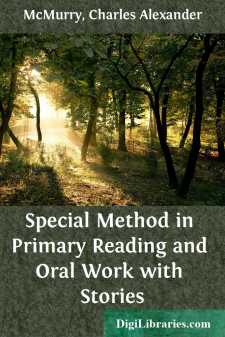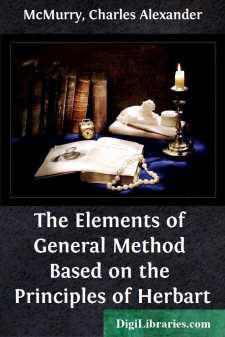Categories
- Antiques & Collectibles 13
- Architecture 36
- Art 48
- Bibles 22
- Biography & Autobiography 813
- Body, Mind & Spirit 138
- Business & Economics 28
- Children's Books 12
- Children's Fiction 9
- Computers 4
- Cooking 94
- Crafts & Hobbies 4
- Drama 346
- Education 46
- Family & Relationships 57
- Fiction 11821
- Games 19
- Gardening 17
- Health & Fitness 34
- History 1377
- House & Home 1
- Humor 147
- Juvenile Fiction 1873
- Juvenile Nonfiction 202
- Language Arts & Disciplines 88
- Law 16
- Literary Collections 686
- Literary Criticism 179
- Mathematics 13
- Medical 41
- Music 40
- Nature 179
- Non-Classifiable 1768
- Performing Arts 7
- Periodicals 1453
- Philosophy 64
- Photography 2
- Poetry 896
- Political Science 203
- Psychology 42
- Reference 154
- Religion 505
- Science 126
- Self-Help 81
- Social Science 81
- Sports & Recreation 34
- Study Aids 3
- Technology & Engineering 59
- Transportation 23
- Travel 463
- True Crime 29
Special Method in Primary Reading and Oral Work with Stories
Description:
Excerpt
CHAPTER I
The telling and reading of stories to children in early years, before they have mastered the art of reading, is of such importance as to awaken the serious thought of parents and teachers. To older people it is a source of constant surprise—the attentive interest which children bestow upon stories. Almost any kind of a story will command their wide-awake thought. But the tale which they can fully understand and enjoy has a unique power to concentrate their mental energy. There is an undivided, unalloyed absorption of mind in good stories which augurs well for all phases of later effort. To get children into this habit of undivided mental energy, of singleness of purpose in study, is most promising. In primary grades, the fluttering, scatter-brained truancy of thought is the chronic obstacle to success in study.
The telling or reading of stories to children naturally begins at home, before the little ones are old enough for school. The mother and father, the aunts and uncles, and any older person who delights in children, find true comfort and entertainment in rehearsing the famous stories to children. The Mother Goose, the fables, the fairy tales, the "Arabian Nights," Eugene Field's and Stevenson's poems of child life, the Bible stories, the myths, and some of the old ballads have untold treasures for children. If one has a voice for singing the old melodies, the charm of music intensifies the effect. Little ones quickly memorize what delights them, and not seldom, after two or three readings, children of three and four years will be heard repeating whole poems or large parts of them. The repetition of the songs and stories till they become thoroughly familiar gives them their full educative effect. They become a part of the permanent furniture of the mind. If the things which the children learn in early years have been well selected from the real treasures of the past (of which there is a goodly store), the seeds of true culture have been deeply sown in their affections.
The opportunities of the home for good story-telling are almost boundless. Parents who perceive its worth and are willing to take time for it, find in this early period greater opportunity to mould the lives of children and put them into sympathetic touch with things of beauty and value than at any other time. At this age children are well-nigh wholly at the mercy of their elders. They will take what we give them and take it at its full worth or worthlessness. They absorb these things as the tender plant absorbs rain and sunshine.
The kindergarten has naturally found in the story one of its chief means of effectiveness. Stories, songs, and occupations are its staples. Dealing with this same period of early childhood, before the more taxing work of the school begins, it finds that the children's minds move with that same freedom and spontaneity in these stories with which their bodies and physical energies disport themselves in games and occupations.
It is fortunate for childhood that we have such wholesome and healthful material, which is fitted to give a child's mental action a well-rounded completeness. His will, his sensibility, and his knowing faculty, all in one harmonious whole, are brought into full action. In short, not a fragment but the whole child is focussed and concentrated upon one absorbing object of thought.
The value of the oral treatment of stories is found in the greater clearness and interest with which they can be presented orally. There is a keener realism, a closer approximation to experimental facts, to the situations, the hardships, to the sorrows and triumphs of persons. The feelings and impulses of the actors in the story are felt more sharply. The reality of the surrounding conditions and difficulties is presented so that a child transports himself by the power of sympathy and imagination into the scenes described....



